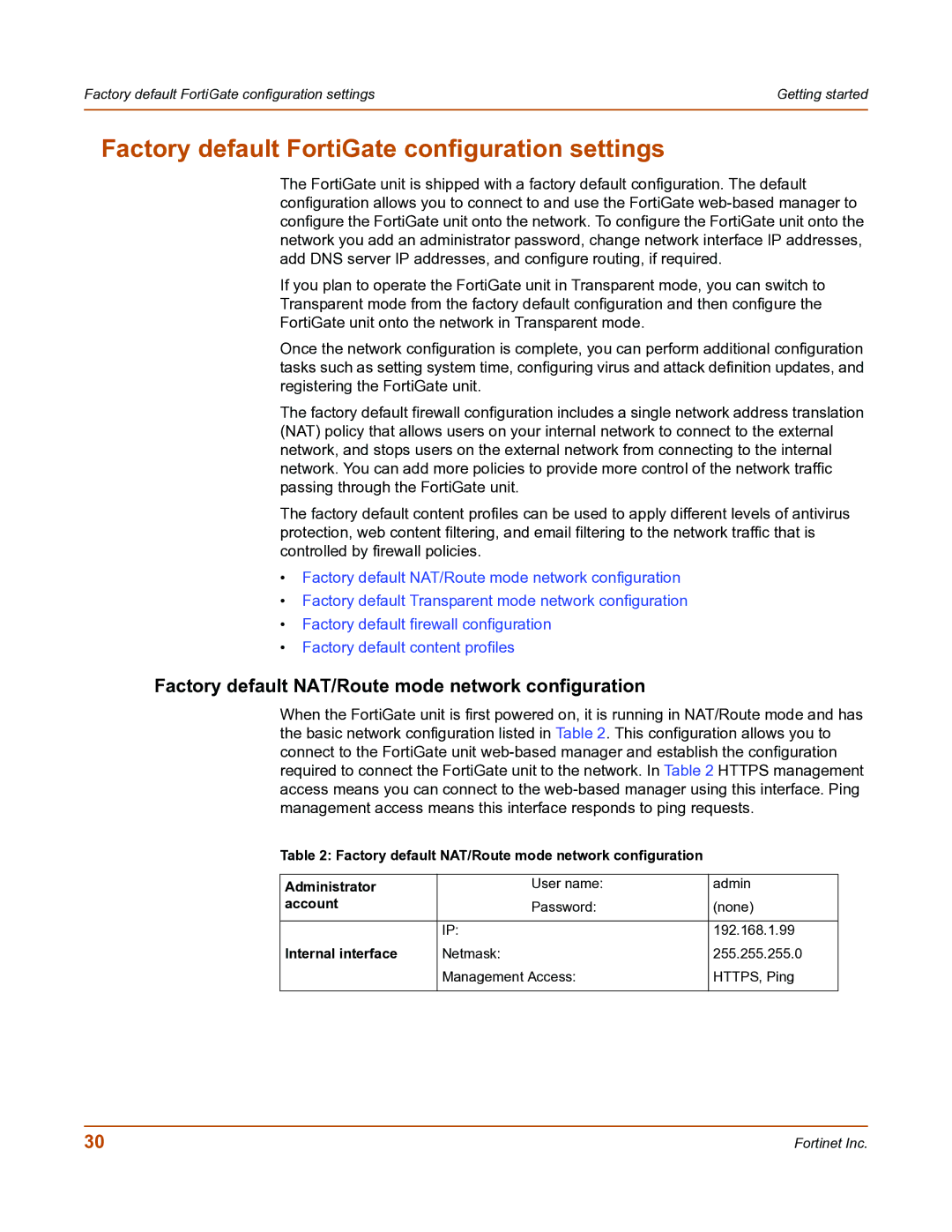Factory default FortiGate configuration settings | Getting started |
|
|
Factory default FortiGate configuration settings
The FortiGate unit is shipped with a factory default configuration. The default configuration allows you to connect to and use the FortiGate
If you plan to operate the FortiGate unit in Transparent mode, you can switch to Transparent mode from the factory default configuration and then configure the FortiGate unit onto the network in Transparent mode.
Once the network configuration is complete, you can perform additional configuration tasks such as setting system time, configuring virus and attack definition updates, and registering the FortiGate unit.
The factory default firewall configuration includes a single network address translation (NAT) policy that allows users on your internal network to connect to the external network, and stops users on the external network from connecting to the internal network. You can add more policies to provide more control of the network traffic passing through the FortiGate unit.
The factory default content profiles can be used to apply different levels of antivirus protection, web content filtering, and email filtering to the network traffic that is controlled by firewall policies.
•Factory default NAT/Route mode network configuration
•Factory default Transparent mode network configuration
•Factory default firewall configuration
•Factory default content profiles
Factory default NAT/Route mode network configuration
When the FortiGate unit is first powered on, it is running in NAT/Route mode and has the basic network configuration listed in Table 2. This configuration allows you to connect to the FortiGate unit
Table 2: Factory default NAT/Route mode network configuration
Administrator | User name: | admin |
account | Password: | (none) |
|
|
|
| IP: | 192.168.1.99 |
Internal interface | Netmask: | 255.255.255.0 |
| Management Access: | HTTPS, Ping |
|
|
|
30 | Fortinet Inc. |
